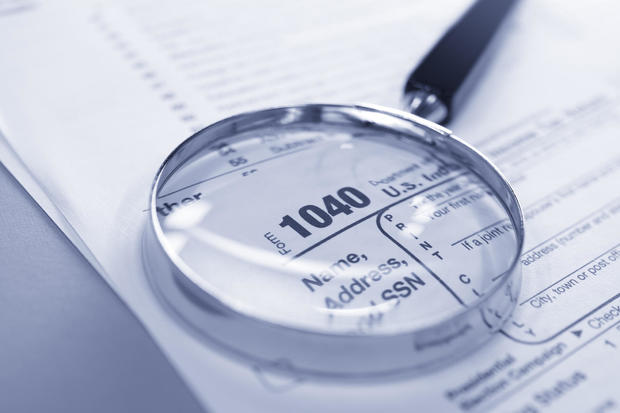Can debt relief help with your tax debt?
Millions of Americans are grappling with high amounts of debt in today's challenging economic landscape. Whether it's credit card balances, personal loans or other financial obligations, the weight of that debt can feel suffocating. But that burden has become even more pronounced recently, as many households are stretched thin due to elevated borrowing rates and the lingering effects of inflation on consumer goods prices.
While the cost of borrowing has begun to cool, the impact of the last few years of economic turbulence is still being felt. Budgets that once had room for maneuvering now feel constricted, leaving many people searching for solutions to their mounting debt concerns. And while credit card and loan debt may be the most common forms of financial strain, those are certainly not the only types of debt causing challenges. For a significant number of people, tax debt is a particularly daunting challenge, too.
If you're dealing with something similar, you may be wondering whether it makes sense to contact a traditional debt relief company for help, since these companies can typically help reduce your total credit card debt or lower the interest rates or fees on your debt. But can debt relief be used to help with your tax debt? Below, we'll detail what you should know.
Explore the many debt relief options available to you here.
Can debt relief help with your tax debt?
The short answer to that question is: Not really.
Debt relief companies typically focus their efforts on helping you manage credit card and loan debt, or even medical debt. When it comes to tax debt, though, these companies generally aren't the solution you need, as back taxes come with a different set of rules and consequences.
Debt forgiveness (or debt settlement) programs, for example, are designed to negotiate lower balances on unsecured debts like credit cards. Tax debt is not considered an unsecured debt in the way that credit card debt is, though. When you owe the IRS, your debt is tied to federal laws and regulations, which tends to make it more complicated and less negotiable than other types of debt.
The IRS also has legal authority to take actions that credit card companies cannot, such as placing liens on your property, garnishing your wages or levying your bank accounts. These are powerful collection methods that require specialized solutions, not typical debt relief services.
So, while it might be tempting to contact a debt relief company to address tax debt, the reality is that most of these services won't be able to provide the assistance you need. In most cases, you'll need to find a different type of debt relief service to help.
Learn more about how debt relief could help with your loan and credit card debt.
What are my tax relief options?
If traditional debt relief isn't the answer to dealing with back taxes, what options are available for those struggling with tax debt? There are specialized tax relief companies designed to address this unique form of financial obligation. These services can help ease your tax burden and get you back in good standing with the IRS.
Unlike general debt relief companies, tax relief firms have in-depth knowledge of tax laws, IRS procedures and the various programs available to taxpayers in distress. These companies also typically offer a range of services tailored to your specific situation, but one of their primary functions is to act as an intermediary between you and the IRS, leveraging their expertise to navigate the complex world of tax regulations.
Here are some ways a tax relief company can help:
- Penalty abatement: In many cases, tax relief services can work with the IRS to reverse fees and penalties that have been added to your original tax debt. This can significantly reduce the amount you owe.
- Installment agreements: Tax relief experts can negotiate affordable payment plans with the IRS on your behalf, which allow you to pay off your tax debt over time, often with lower monthly payments than you might secure on your own.
- Offer in compromise: In certain situations, tax relief services may be able to negotiate a settlement for less than the full amount owed. While this is not as common as with private debt, it is possible under specific circumstances, such as financial hardship or disputes over the amount owed.
- Currently not collectible status: If you're facing severe financial difficulties, tax relief professionals may be able to temporarily halt collection efforts by having your account classified as "currently not collectible."
- Lien and levy release: Tax relief services can work to remove liens on your property or release levies on your assets, helping to protect your financial interests while you work to resolve your tax debt.
- Audit representation: If you're facing an IRS audit, tax relief experts can represent you throughout the process, ensuring your rights are protected, potentially minimizing additional tax liabilities.
Find out what your tax relief options are here.
The bottom line
While traditional debt relief can help with many types of debt, they may not be the answer to your tax debt woes. However, specialized tax relief services can offer a path forward. By understanding the unique nature of tax debt and seeking appropriate assistance, you can take concrete steps to address your obligations to the IRS and regain control of your financial future. Just be sure to act promptly, as the sooner you address your tax debt, the more options you'll have available to resolve it.




